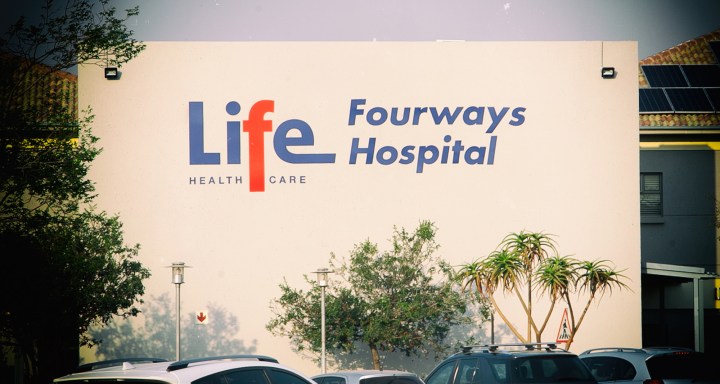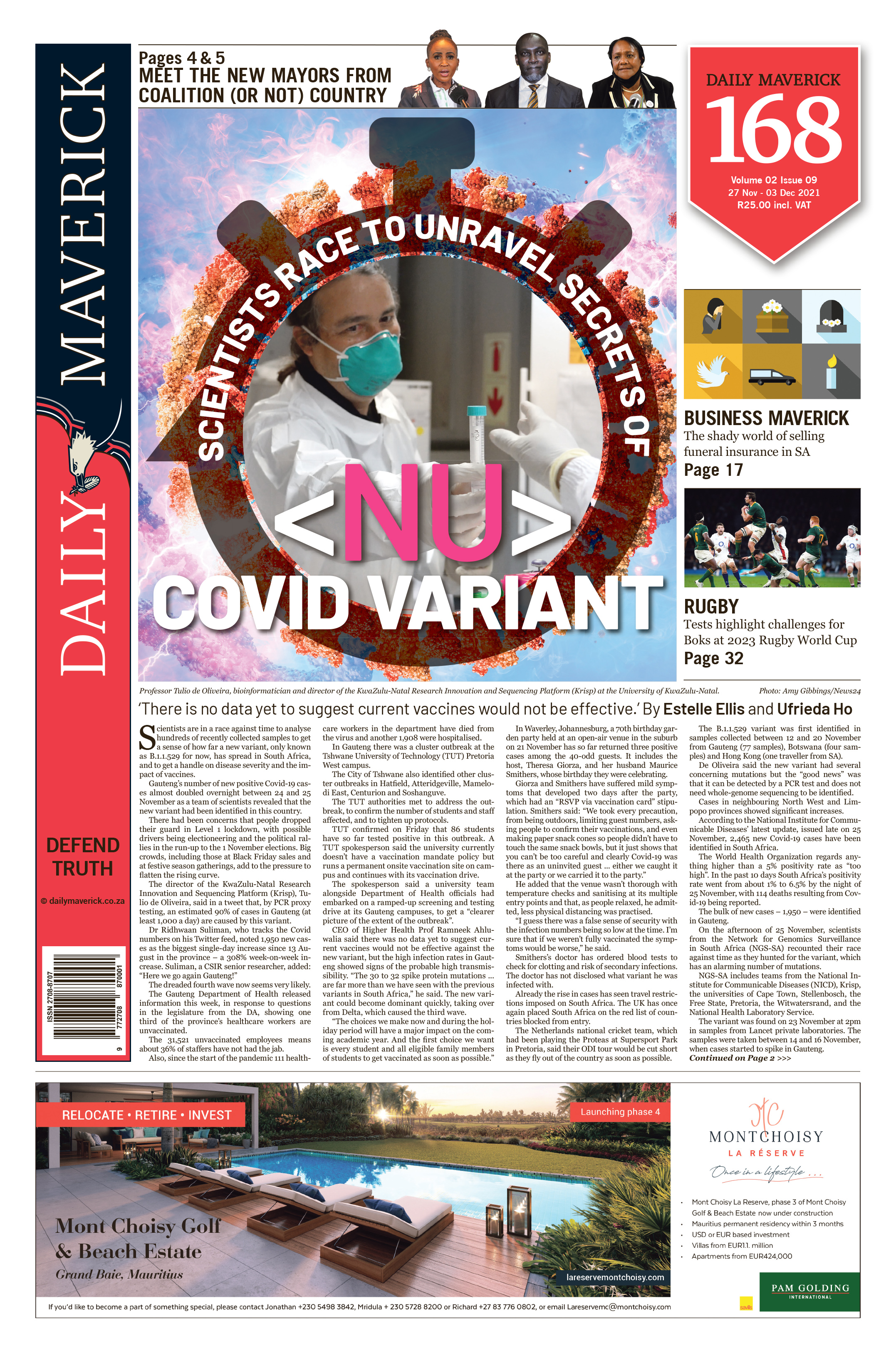MEDICAL SCHEME TARIFFS
The pursuit of fair and equitable healthcare charges through an annual negotiation process is crucial

Medical schemes say it is critical for negotiations to agree on equitable charges to ensure the increases stay as low as possible to keep scheme increases down for members.
Hospital admissions are one of the biggest cost drivers for private medical schemes and concerns around increased usage and higher tariffs could lead to more co-payments for medical scheme members.
Lee Callakoppen, the principal officer of Bonitas Medical Fund, says hospital admissions account for half of the scheme’s annual claims cost. “Last year, due to the pandemic, hospital admissions and the utilisation of other medical aid benefits fell to record lows. However, the 2021 claims’ experience has shown that a lot of services, particularly the day-to-day benefits and several hospital admission categories, are already close to 2019 levels,” he says.
Since the start of the pandemic, Bonitas has spent more than R2.7-billion on Covid-19-related costs, of which R1.73-billion is for the 2021 year-to-date. More than 80% of these Covid-19 costs relate to hospitalisation. “We anticipate that during 2022, utilisation is going to go back to where it was in 2019 or even higher. Which is why it is critical that schemes, such as Bonitas and hospital groups, agree on fair and equitable tariff charges through an annual negotiation process to ensure the lowest possible increases in the interest of members.
“Over the last three years concerted efforts have been made by hospital groups to keep tariffs low; however, there are still significant opportunities to drive healthcare cost down,” he says.
Callakoppen warns that if hospital costs balloon above CPI (currently 5%), so will membership premiums, which will result in medical aid schemes becoming unaffordable. The number of medical schemes in the country has already declined by almost half from 144 in 2000 to 76 schemes last year. The number of beneficiaries using medical schemes has been stagnant over the past five years, remaining under nine million.
According to the Council for Medical Schemes Industry Report released earlier this year, the proportion of healthcare expenditure on hospital services was 35.21% in 2020. However, the lower usage of healthcare benefits during 2020 on the back of Covid-fears resulted in the medical scheme industry incurring a surplus of R24.85-billion last year, significantly higher than the R7.085-billion surplus in 2019.
The Medical Schemes Act requires medical schemes to maintain a solvency ratio of at least 25% so that they remain financially viable and the combined industry reserves to meet this 25% requirement stand at R97.92-billion for the 2020 financial year.
However, schemes are not merely sitting on these extra funds. Both Bonitas and Fedhealth have dipped into their reserves, forking out R600-million and R105-million, respectively, to keep increases down for medical scheme members in the year ahead.
This allowed the schemes to announce average contribution increases of 4.8% and 5.5%, respectively.
Callakoppen says negotiations with hospital providers resulted in a 3.1% saving in 2021 and could exceed R200-million in 2021, while in 2020 strategic purchasing yielded hospital negotiation savings of R346-million.
“However, if tariff increase agreements cannot be reached, there are two possible scenarios. The first is that the scheme pays what it deems to be a reasonable rate and the hospital bills its rate. This means the member would be required to pay in the shortfall on the account unless the hospital decides to override the difference.
“In the second scenario, a scheme can exclude the hospital provider from its network and actively discourage a member from using this hospital. The member may need to pay a deductible or co-payment if they choose to be admitted at this facility unless the hospital decides to override the difference,” Callakoppen says.
Hospital revenues up 11% to 12%
The country’s three biggest hospital groups – Netcare, Life Healthcare and Mediclinic – all released financial results in the past month. Netcare’s group revenue for the 2021 financial year increased 11.5% to R21-billion and operating profit grew by 45.4% to R2-billion. However, Dr Richard Friedland, the chief executive officer of Netcare, says it is broadly estimated that the pandemic resulted in the loss of approximately R1.5-billion in earnings before interest, tax, depreciation and amortisation.
“Since our first Covid-19 case in March 2020, we have treated more than 125,000 Covid patients, of which 43% were admitted to our hospitals. In addition to absorbing lower activity levels throughout the pandemic, Netcare also incurred Covid-related costs of approximately R521-million. Approximately 80% of these costs comprise personal protective equipment (PPE) required to keep staff, doctors and patients safe and prevent in-hospital infection. These costs continued to weigh on margins, given the higher prices paid for PPE during the first wave in May 2020 due to a shortage of international supply and long lead times,” he says.
Life Healthcare netted a group revenue increase of 12.7% to R21.7-billion for the 2021 financial year; however, this was largely driven by the Alliance Medical Group (AMG) within the Life Healthcare stable. AMG is an international diagnostics company with excellent market positions in the UK, Italy and Ireland. It specialises in:
- MRI (magnetic resonance imaging) scans: uses a large magnet to take detailed pictures of the inside of the body;
- CT (computed tomography) scans: uses X-rays to take detailed pictures of the inside of the body; and
- PET-CT scans: an imaging test that allows your doctor to check for diseases in your body. The scan uses a special dye containing radioactive tracers.
Group chief executive Peter Wharton-Hood says Life Healthcare operated 22 vaccination sites at its facilities and has carried out 380,000 vaccinations to date. The group plans to begin rolling out of its mandatory vaccination policy from 1 December 2021.
Mediclinic reported an increase of 12% in group revenue for the six months to the end of September this year, on the back of a strong recovery in patient volumes exceeding pre-pandemic levels at Swiss-based Hirslanden and Mediclinic Middle East. Mediclinic Southern Africa’s revenue was up 35% to R9.3-billion, compared to the first half of 2021 when lockdowns and restrictions significantly reduced patient activity. Revenue was ahead of pre-pandemic levels by 9%.
Gap cover claims increase
An analysis of gap insurance claims paid by Sirago Underwriting Managers during 2020 shows that not only are average gap claims values rising, but large or mega gap claims are also increasing in frequency, with large shortfalls ranging between R41,000 and R164,000 for in-hospital treatments not paid by medical schemes.
Of the thousands of claims processed in 2020, Sirago paid more than 100 “mega claims” – internally classified as upwards of R40,000 per claim – totalling about R5.1-million in shortfalls not covered by members’ medical scheme options.
Martin Rimmer, the chief executive of Sirago Underwriting Managers, says it seems that the knock-on effect of delaying other elective surgeries and preventative health checks in the first half of 2020 were marked, with doctors and patients playing “catch-up” in the latter half of 2020 when they realised the pandemic was going nowhere and they could no longer delay the required medical interventions.
“In some instances, these delays have meant more costly treatments as prognoses worsened due to delayed health interventions,” he says. DM168
This story first appeared in our weekly Daily Maverick 168 newspaper which is available for R25 at Pick n Pay, Exclusive Books and airport bookstores. For your nearest stockist, please click here.





















 Become an Insider
Become an Insider
Comments - Please login in order to comment.